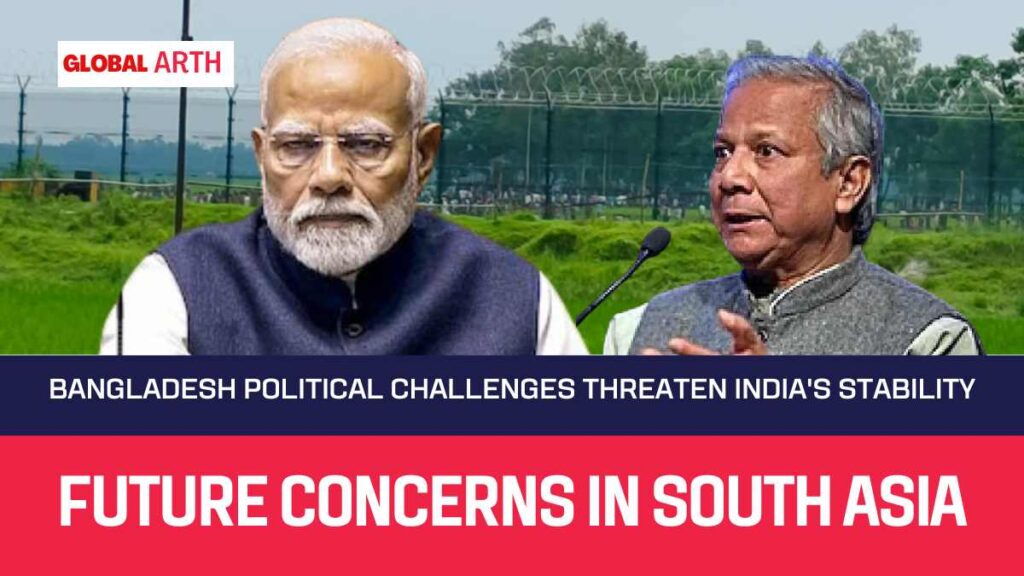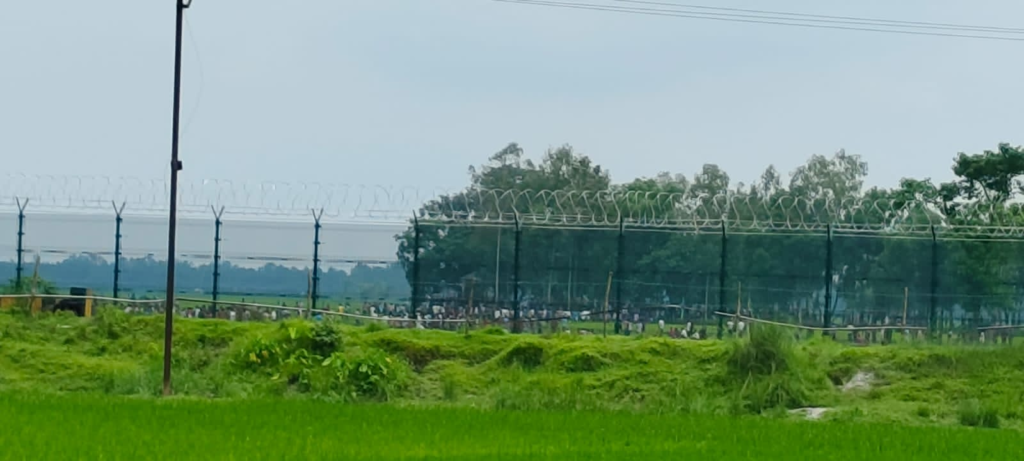Bangladesh Political Challenges India Stability: Future Impacts

Bangladesh's political challenges threaten India's regional stability, posing future geopolitical concerns in South Asia.
As South Asia navigates complex geopolitical dynamics, Bangladesh political challenges India stability by posing significant regional threats. In the next five years, Bangladesh could emerge as a major geopolitical concern for India, alongside China and Pakistan. This concern is highlighted by recent statements from Mohammad Younis, an advisor to the interim government of Bangladesh, who has warned of the potential adverse impacts on India if Bangladesh experiences instability.
Rising Tensions in Bangladesh
Younis, who holds considerable sway in Bangladesh’s political landscape, has issued a stark warning to India. He emphasized that instability in Bangladesh could negatively affect India’s neighboring regions, including West Bengal and Northeast India. This warning highlights the delicate balance in South Asia, where any internal unrest in one country can have cascading effects on its neighbors.
Younis has pointed to potential instability in the Indian state of West Bengal and the Northeastern region, stressing that turmoil in Bangladesh could exacerbate these tensions. Additionally, the Rohingya refugee crisis adds another layer of complexity, with Myanmar also being a potential flashpoint if Bangladesh’s internal issues escalate.
Political Shifts and Implications for India
The political landscape in Bangladesh is undergoing significant changes. If elections are held soon, there is speculation that the Bangladesh Nationalist Party (BNP) and Khaleda Zia’s party might gain power, given the recent weakening of Sheikh Hasina’s party. This shift could increase tensions with India, as BNP leaders have already made aggressive statements regarding their future relationship with India.
The BNP leadership has indicated that cooperation with India could be difficult if India continues to support their political opponents. Sheikh Hasina’s current precarious position further complicates this sentiment. Reports suggest Hasina has sought refuge in India amid escalating tensions in Bangladesh. Her unexpected departure from Bangladesh and reports of financial constraints have added to the uncertainty surrounding her future.
A Diplomatic Balancing Act
India’s relationship with Bangladesh is at a crossroads. Prime Minister Modi’s recent statement emphasizing the protection of Hindus and other minority communities in Bangladesh has sparked discussions about India’s stance on religious minorities in the region. This statement has placed additional pressure on Bangladesh to address the safety and security of its minority populations.
The geopolitical analyst Primer has highlighted the possibility of increased militarization in Bangladesh under BNP’s leadership, which could lead to a small-scale conflict with Myanmar. The Rohingya refugee crisis, combined with the military’s significant influence in both Bangladesh and Myanmar, could exacerbate tensions between the two countries.
Economic Implications
Bangladesh’s economy is also facing challenges. Inflation is on the rise, and the country’s once-thriving textile exports are experiencing a decline. This economic downturn has implications for India as well. India’s garment exports to Bangladesh have already decreased, but the current crisis presents an opportunity for India’s textile industry to regain market share.
Bangladesh’s economic struggles could lead to increased reliance on India for financial assistance. This presents India with an opportunity to leverage its support to ensure stability in the region. However, India must navigate these discussions carefully, balancing its interests with the need for regional stability.
Navigating a Complex Future
As Bangladesh prepares for potential political upheaval, India faces the challenge of maintaining stability in the region. The relationship between the two countries will require careful diplomacy, with open discussions about border security, minority rights, and economic cooperation.

The unresolved Teesta River water-sharing issue also looms large, adding another layer of complexity to the bilateral relationship. For Indian Foreign Minister Jaishankar, navigating these challenges will be a crucial test of diplomatic skill and strategic foresight.
As developments unfold, the international community will closely watch how these dynamics play out in South Asia. The outcome of Bangladesh’s elections and the subsequent political landscape will have far-reaching implications for the region’s stability and prosperity.
Stay informed about the latest developments in South Asia. Share your thoughts in the comments, like our Facebook page, follow us on Twitter, and join our WhatsApp group for updates.





3 thoughts on “Bangladesh Political Challenges India Stability: Future Impacts”